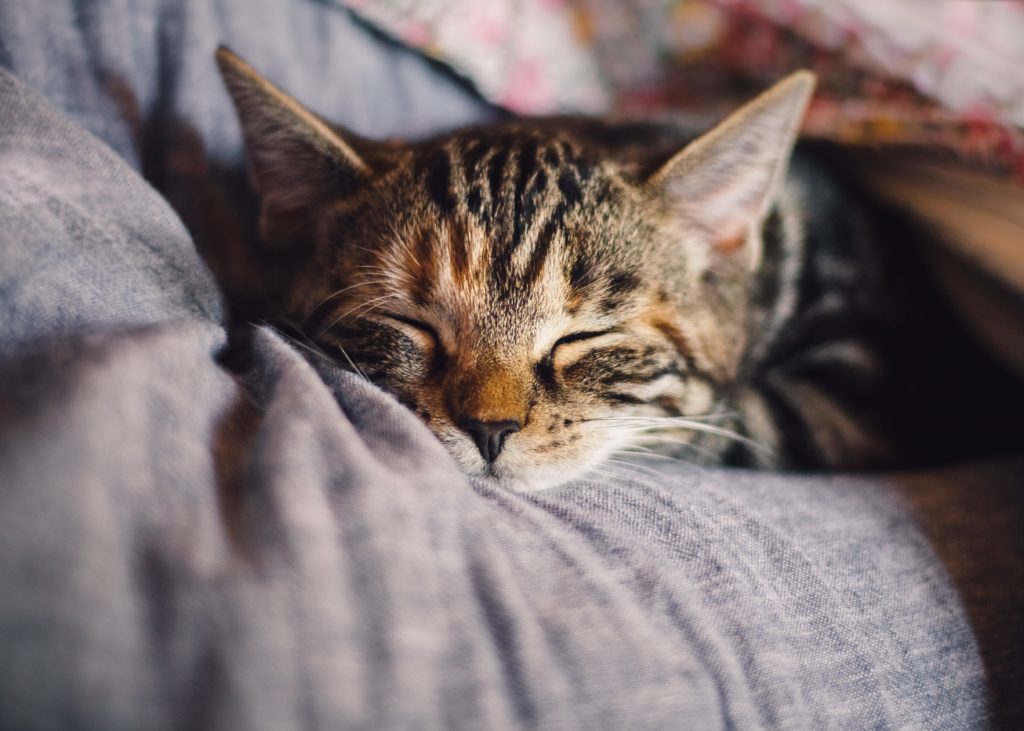When I say “old sick cat,” what image pops into your mind? A dehydrated, quiet little creature bundled up into a pillow? Maybe he or she is turning their nose up at food, or vomiting it all up. If you’re like most people, you didn’t imagine a cat meowing vigorously in your face at midnight and chowing down their food like there’s no tomorrow. But yes, that image fits as well.
It’s a strange paradox of feline medicine that one of the earliest signs of illness is a symptom usually associated with robust health: a great appetite. Most of the time owners are happy to report that their senior cat has recently rediscovered their kitten pep. “He’s been so feisty!” they tell my technician. “He empties his bowl within 5 minutes, and he’s so active he’s even lost a few extra pounds!”
Uh oh.
Late stage hyperthyroidism in cats
Hyperthyroidism is a common affliction of senior cats and the most common endocrine disorder in the feline. Over the past several decades the incidence of hyperthyroidism in felines has been on the rise, though no one is certain why this is the case. Theories abound: canned cat food, improper levels of iodine, alien motherships; while the jury is still out, the best one can do is be aware of the signs and seek veterinary care if you suspect this disease.
So what is hyperthyroidism, exactly? The thyroid gland, a little blob of tissue at the base of the throat, produces hormones that regulate the body’s metabolism. Most cases of hyperthyroidism stem from benign tumors that form in the gland; these tumors do not spread, but pump out high levels of thyroid hormone. The results are what you would expect for a cat with a thundering metabolism: they eat like crazy yet still lose weight. Left untreated, the disease can lead to life threatening cardiac issues, so it does need to be addressed.
The good news is, hyperthyroidism is easily diagnosed with a blood test and can be treated a variety of ways. Most veterinarians begin by treating with oral medications, which can be adjusted as needed. Some cats respond to dietary therapy with a prescription low iodine diet. Once stable, owners can continue with the oral medications for life or can look for a more permanent solution: either surgery or radioactive iodine.
Yes, you can nuke your cat into better health. Strange as it sounds, a single injection of radioactive iodine is extremely effective at targeting just the abnormal cells in the thyroid gland while leaving normal tissue unaffected. It is expensive, but gaining popularity with both veterinarians and owners who don’t like giving their cat a pill twice a day.
Unfortunately, cats can die from thyroid disease.
My own senior cat was recently diagnosed as being hyperthyroid after exhibiting some of these classic signs. Because he is a good cat and likes to allow me to experience all the fun kitty diseases, he is both severely food allergic and hyperthyroid, giving me plenty to manage. And even as someone who does this for a living, pilling him twice a day is a pain- I get that!- so perhaps in the future you will see me blogging about our own adventures with radioactivity.
And what, you may ask, was the sign that made me test his thyroid levels?
I caught him chewing into a bag of Oreos at 2 am like a college student after a night on the town.

